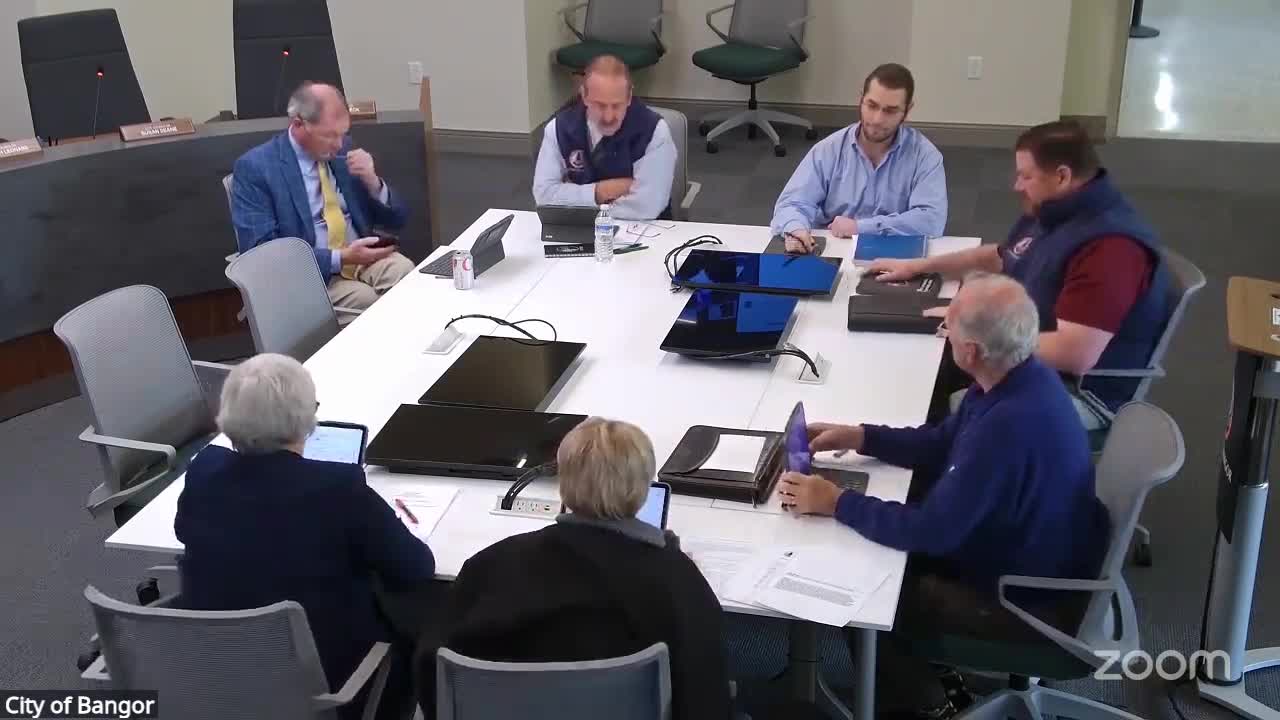Bangor advisory committee presents written procedure for federal-agency agreements after ICE concerns
Get AI-powered insights, summaries, and transcripts
Subscribe
Summary
The Advisory Committee on Racial Equity, Inclusion and Human Rights returned to council with a finalized "resolve" that would put in writing the procedure the city would follow if a federal agency sought an agreement—including a 287(g) deputization agreement—and the item is scheduled for a council vote later the same day.
The Advisory Committee on Racial Equity, Inclusion and Human Rights recommended a written procedure Tuesday describing how the city would handle requests from federal agencies to enter agreements with the city or police department, specifically including those under 287(g), a program that deputizes local officers to enforce federal immigration law.
The committee’s chair, Katie Bridal, said the document is not a new policy but a clear statement of the process that would apply if a federal agency sought an agreement. “This is the process really just outlining the transparency and safety for everyone,” Bridal said. Vice chair Shane Boyse echoed that the text was revised to avoid attempting to bind future councils and instead to document current practices: “It does not say that we will not. It does not prohibit a city…we took that language out, rolled it back, and instead just focused on what support we already have and what things we’re already doing,” he said.
Why it matters: committee members said the paper trail is intended to reassure residents who have told the committee they fear targeted federal enforcement actions. Committee members cited local incidents and national trends that prompted residents to seek clearer public guidance from city leaders.
Council reaction was mixed in the workshop discussion. Councilor Fish said the city’s charter, code of ethics and existing policies already express the city’s stance and worried the resolve would be redundant: “We have code of ethics and charters which explicitly explain where we are as a city,” Fish said. Councilor Mallard and Councilor Malekos expressed similar concerns about producing another resolve rather than addressing other city priorities. Councilor Dean said he continued to support the resolve, calling it “to the point without being overboard, making people feel safe.”
A member of the council raised questions about the legal effect of the language and whether the document would actually prevent an agreement; Chief of Police (unnamed in the workshop) clarified that the committee’s version outlines the procedure if an agency sought an agreement and that the department has not asked to be deputized under 287(g): the chief said the draft “just details the procedure for if it were to happen, here's what would happen.”
The workshop produced no formal vote; staff confirmed the committee’s final draft is on the regular council meeting agenda later the same day for a formal vote. Councilors and committee members said the purpose of the workshop was to allow more councilors to review revisions and hear constituent concerns before that vote.
Ending: Committee members said they expect public comment when the item is heard in the regular meeting and that the resolve is intended to provide a readable, public explanation of existing procedures rather than create a new restriction.
